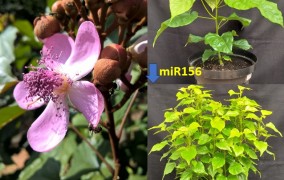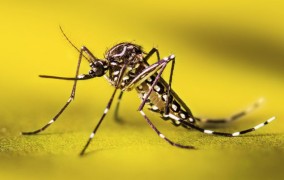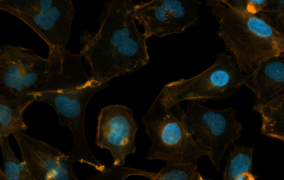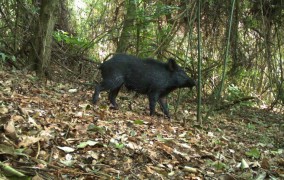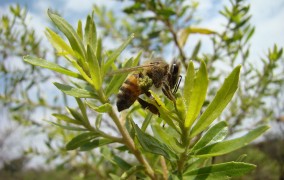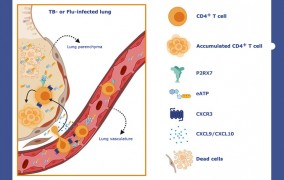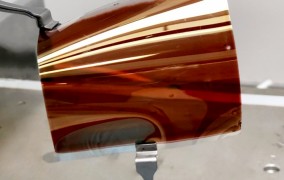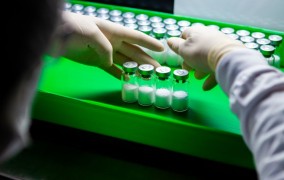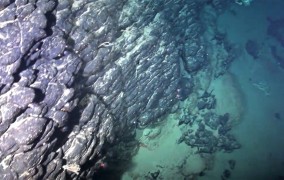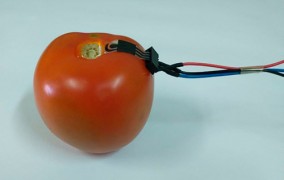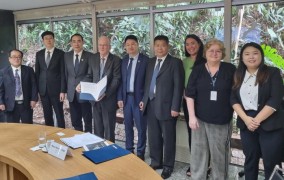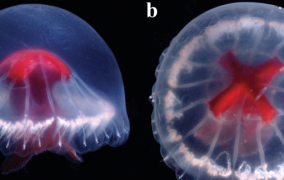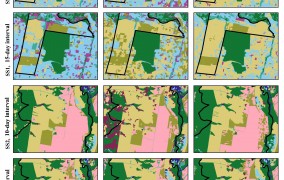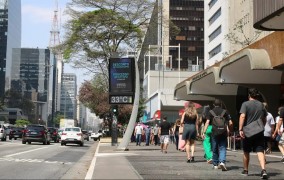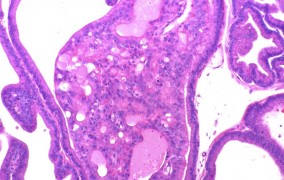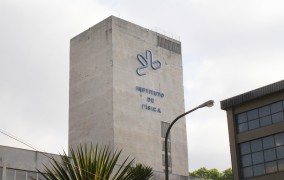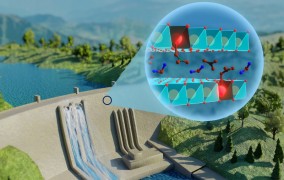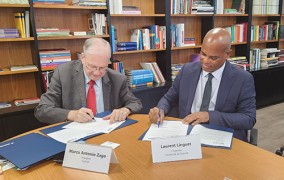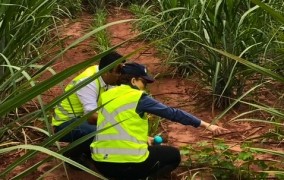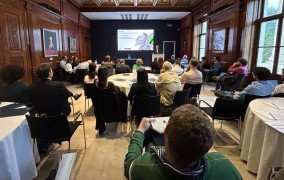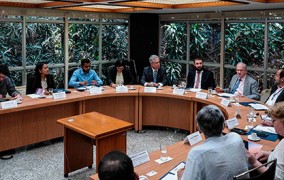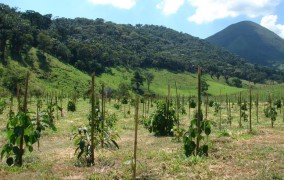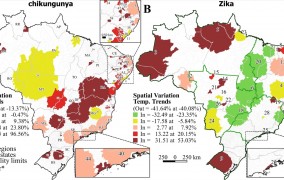
Search: 4362 news
-
Overconsumption of fructose by parents increases risk of cardiometabolic disease in offspring, study shows
2024-02-14Blood pressure rose in offspring born to high-fructose rats, and physiological regulation of their cardiovascular system was impaired. High-fructose syrup is widely used as a sweetener by the food and beverage industry. -
Discoveries can be used to optimize production of annatto powder
2024-02-09A study by Brazilian researchers shows that the pigment is present not only in the seeds but also in other organs of Bixa orellana, the Annatto tree. They investigated the genetic pathways involved in synthesis of the substance. -
Prior zika infection increases risk of subsequent severe dengue and hospitalization, study concludes
2024-02-07A study led by Brazilian researchers suggests that the mechanism that exacerbates dengue infection following a case of zika differs from that acting on second-time dengue patients. The finding is relevant to the development of a zika vaccine. -
Scientists discover that a protein associated with neurodegenerative diseases is also linked to childhood brain cancer
2024-02-07A study conducted at a FAPESP-supported research center discovered a link between the protein VAPB and tumor cell proliferation in medulloblastoma, one of the most common and aggressive brain tumors in children. -
In the Cerrado, crop diversification has beneficial effects on wildlife and reduces the presence of boars
2024-02-07Considered an invasive species, Sus scrofa causes damage to farmers in an important part of Brazil’s savanna-like biome. The researchers analyzed 55 landscapes in São Paulo state, observing larger numbers of native mammals in areas with well-conserved vegetation and diversified crops, while native species richness was far lower in areas of monoculture. -
Study demonstrates antitumor action of substance present in Brazilian green propolis
2024-02-07The analysis compared the effects of artepillin C on healthy cells and cancer cells, as well as the effects on its efficacy of variations in the medium’s pH. -
United Kingdom, Switzerland and Germany join new call for proposals issued by Amazon+10 Initiative
2024-02-07With the new contributions from abroad, the Scientific Expeditions call, issued in partnership with the National Council for Scientific and Technological Development, now has a fund totaling some BRL 94 million. -
Study reveals mechanism that aggravates tuberculosis and reduces survival rates
2024-02-07CD4+ T cells play an important role in the immune response to pulmonary infections, but excessive amounts can damage the lungs. In experiments with mice, researchers at the University of São Paulo discovered what leads to this exacerbated response. -
Startup achieves success with machine that produces thin films from soluble materials with many applications
2024-02-07The startup has been supported by FAPESP since its foundation in 2020. The device can be used to make film for perovskite solar cells, biomaterials for wound dressings and tissue regeneration, and novel drug and cosmetic delivery systems. -
Butantan Institute’s dengue vaccine protects 79.6% of those vaccinated, study shows
2024-02-01Data from the Phase 3 clinical trial was published on February 1st in The New England Journal of Medicine. The vaccine is safe for both participants who have had dengue and those who have never been exposed to the virus before. -
Study shows that Rio Grande Rise was once a giant mineral-rich tropical island near Brazil
2024-01-31This part of the seafloor in the South Atlantic is rich in cobalt, nickel and lithium, as well as tellurium and other rare earths critical to the energy transition. The scientists plan to continue research on its natural processes as a contribution to prospecting efforts. -
Biodegradable sensor monitors levels of pesticides via direct contact with surface of fruit and vegetables
2024-01-31Developed by a team of Brazilian researchers, the device is made of plant-based material with little environmental impact, and detects pesticides in a few minutes, helping to certify food safety. -
FAPESP signs agreement with China-Latin America and Caribbean Technology Transfer Center
2024-01-31The aim is to foster scientific and technological collaboration between researchers affiliated with the Chinese entity and colleagues at universities and research institutions in São Paulo state. -
Brazilian researcher helps describe a novel species of jellyfish discovered in a remote location in Japan
2024-01-31André Morandini, Director of the University of São Paulo’s Center for Marine Biology, was on the team that has published a description of a rare medusa found at a depth of 812 meters. The animal has been sighted only twice in a deep-sea volcanic structure called Sumisu Caldera, in the Ogasawara Islands. -
Method combines artificial intelligence and satellite imagery to map crop-livestock integration systems
2024-01-31The study, which was conducted by Brazilian researchers, supports sustainable agriculture and offers contributions to public policy formulation. -
Cancer: mortality is higher among Black people in Barretos (São Paulo state, Brazil) and among White people in São Paulo city
2024-01-31In 18 cities of the Barretos region, where the proportion of Black people in the population is smaller, cancer kills more members of this ethnic group, whereas in the capital of the same state, it kills more White people, according to a study that compares cancer mortality rates and points to ways of reducing inequalities in diagnosis and treatment. -
System based on Brazilian technology monitors industrial networks
2024-01-31The platform, developed by a company based in São Carlos (São Paulo state, Brazil) and supported by FAPESP, is able to predict and permit correction of failures in order to avoid unplanned factory production line downtime. -
Study explains why protein-poor diet during pregnancy increases risk of prostate cancer in offspring
2024-01-24In experiments with rats, researchers at São Paulo State University detected changes in the expression of more than 700 genes in offspring. One of these genes is known to be associated with prostate cancer. -
Applications are open for the São Paulo School of Advanced Science on Quantum Materials
2024-01-24The event will take place on July 16-26 at the University of São Paulo’s Physics Institute, for 100 graduate students and/or young researchers, half from Brazil and half from other countries. -
Novel material facilitates measurement of concrete deterioration in buildings and other structures
2024-01-24The material is a compound similar to clay and enables inspectors to carry out in-situ assessment of structural conditions in buildings, bridges, dams and other structures without having to drill for samples and analyze them in a laboratory. -
Study helps explain why stress in adolescence can lead to predisposition to mental illness in adulthood
2024-01-24In experiments with rats, researchers at the University of São Paulo analyzed brain tissue and detected alterations in genes associated with energy metabolism. -
FAPESP signs scientific and technological cooperation agreement with University of French Guiana
2024-01-24The two parties are interested in collaborative research on sustainable use of biodiversity in the Amazon, prevention of transmissible and chronic diseases, and sustainable construction, among other subjects. -
Computational tool processes data to produce predictive analysis for agribusiness
2024-01-24The solution, which was developed via a project supported by FAPESP, aims to help farmers assess risks and forecast future prices. -
Study of gigantism in whales provides clues to genomic mechanism involved in tumor suppression
2024-01-22Some species of cetacean are up to 4 meters in length, while others reach 30 meters. According to researchers at the State University of Campinas, genes that favor the colossal growth of these mammals also inhibit the development of cancer. -
A single session of aerobic exercise improves blood pressure in rheumatoid arthritis patients
2024-01-17A study involving 20 women with rheumatoid arthritis and high blood pressure demonstrates the benefits of walking at moderate speed for 30 minutes even after tests that simulate stressful situations and tend to raise blood pressure. -
FAPESP and UK’s Royal Society hold bilateral meeting in London
2024-01-17The purpose of the event was to build ties and foster collaboration between researchers in São Paulo state and the United Kingdom. -
Study identifies priority areas for conservation of endangered crustacean in Brazil
2024-01-17The land crab Johngarthia lagostoma occurs only on four ocean islands, three of which are in Brazil, but little is known of its natural history. Brazilian researchers discovered that a hill and beach on Trindade Island play a key role in the species’ reproductive cycle and survival. -
ASEAN delegation meets with senior executives of FAPESP to discuss ways of intensifying research and innovation partnerships
2024-01-17Indonesia, Malaysia, Philippines, Singapore Thailand and Vietnam have dynamic economies and similarities with Brazil that make collaboration particularly relevant. -
Novel methodology projects growth of native trees, enhancing return on investment in forest restoration
2024-01-17The study analyzed data for 13 Atlantic Rainforest restoration areas involving ten species of native trees that could be commercially useful to the timber industry. Publication of the findings comes during the UN Decade on Ecosystem Restoration. -
Cases of chikungunya and zika fall in Brazil, but most risk clusters exhibit an upward trend
2024-01-17Researchers at the University of São Paulo and São Paulo state’s Center for Epidemiological Surveillance observed spatial and temporal patterns of occurrence and co-occurrence for the two arboviral diseases in all Brazilian municipalities, alongside the influence of environmental and socio-economic factors.
Most popular
-
Amazon scorpion toxin kills breast cancer cells
2025-06-18
-
Spending more than 3 hours a day sedentary worsens teens’ mental health
2025-02-20
-
Climate change could drastically reduce aquifer recharge in Brazil
2025-09-17
-
Microplastics may affect bone health
2025-09-17
-
‘Science alone will not save us’: Paulo Jannuzzi highlights the need for republican values
2025-09-17
-
Butantan Institute says its dengue vaccine protects against serotype 3
2025-02-05
-
FAPESP aims to boost the development of quantum technologies in Brazil
2025-01-15
-
Molecule reverses cognitive deficits associated with aging and dementia in animal tests
2025-05-12
-
Ants defend plants from herbivores but can hinder pollination
2025-09-15
-
Personality traits influence the development of insomnia
2025-05-19






